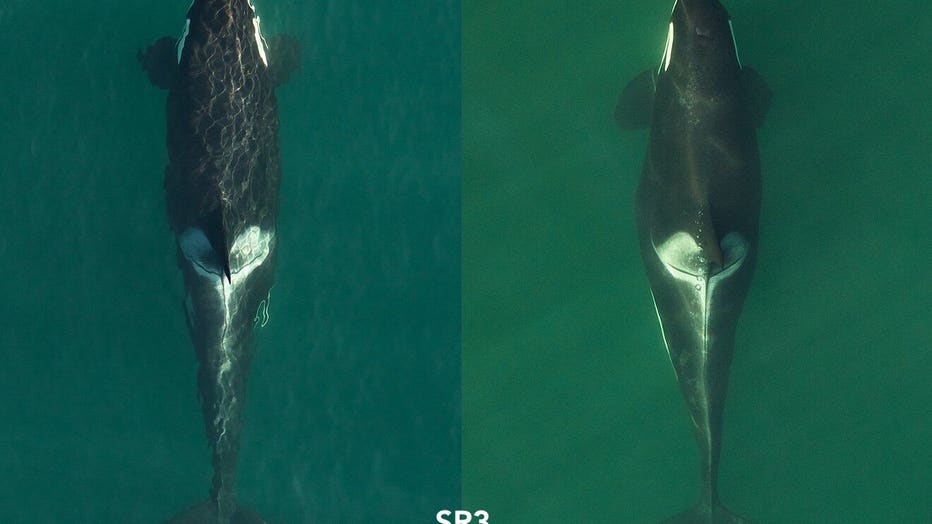Aerial photos show 'a number' of pregnant southern resident orcas, researchers say
SEATTLE - Aerial photos of the region's critically endangered southern resident orcas show "a number" of pregnant killer whales from all three southern resident pods, according to the nonprofit SR3 - Sealife Response, Rescue and Research.
One of those pregnant orcas is Tahlequah - or J35 - the southern resident that made national and international headlines when she carried her dead calf for 17 days and more than 1,000 miles.
SR3 reports on its website that it's not unusual for this many southern residents to be pregnant. Researchers are hopeful but realistic, as unfortunately, "the majority of recent pregnancies have not resulted in successful births."
"Studies by our colleagues at the University of Washington have shown that these reproductive failures are linked to nutrition and access to their Chinook salmon prey, so we hope folks on the water can give the Southern Residents plenty of space to forage at this important time," SR3 researchers said.

L72 pregnancy photo courtesy SR3 - Sealife Response + Rehab + Research
Pregnancy in killer whales typically lasts 17-18 months.
Southern resident orcas typically inhabit the waters of Washington state and British Columbia during the spring and summer. This year, however, visits from the southern resident orca pods have been scarce in the Puget Sound, leading some researchers to reach the tragic conclusion that our southern resident orcas are residents no more.
“They were known as residents because people expected to see them from about mid-May through October here, but now that’s just not the case,” Deborah Giles, an orca research scientist for University of Washington’s Center for Conservation Biology, told Q13 News in early July.
Earlier this summer, fractured pods made only sporadic appearances inland, with some visits lasting less than a day.
“It tells me that they’re not finding fish here, that’s for sure, and the fact that they’re leaving gives me hope that they’re finding fish elsewhere,” Friedman said.
According to the Center for Whale Research, there are only 73 southern resident orcas left.
"With such a small population, every successful birth is hugely important for recovery," SR3 said in its blog post.

